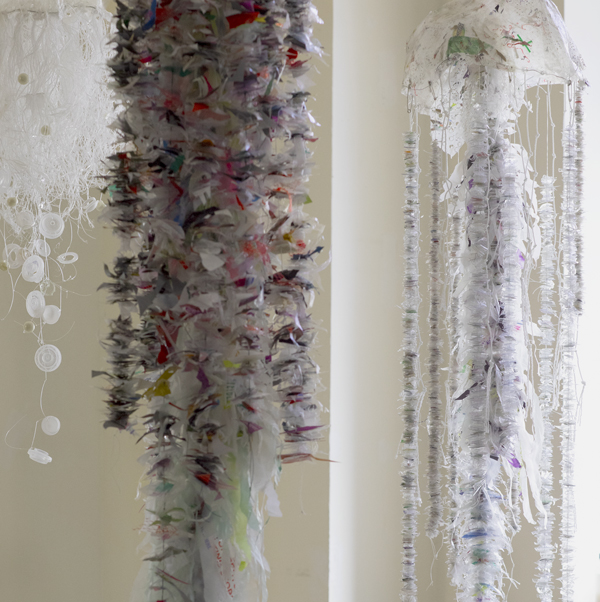
PERSISTENT SOFT BODIES
Heedless petroleum extraction and its ubiquitous bi-products have unconscionably contaminated our planet, permanently altering ecology. Whether this continuous destructive process can be reversed and damage repaired is an open question. But research shows earth as we have known it will never be the same.
Jellyfish, a part of “Cnidaria” animal phylum along with sea anenomes and corals, are found to be among earth’s oldest life forms, dating from 500-700 million years (3X older than dinosaurs). These “gelatinous animals that drift through ocean’s water columns” ** have neither skeletons nor brains but show remarkable stamina over time with shifting water conditions and eating just about anything.
PERSISTENT SOFT BODIES (PSB) proposes a low tech dream-scape installation that invites viewers to imagine what might be encountered in a post-human world submerged by ocean and populated by plastic infused creatures that have evolved to thrive on the very rubbish that choked the life from mammals, fish and birds and caused waters to rise.
For plastics, there is no AWAY in the act of THROWING AWAY. Imagining the course of evolution from here, are human superior brains outwitting themselves into extinction? Perhaps we are paving the way for the rise of simpler life forms to prevail like jellyfish who function without brains at all —only an assembly of gelatinous tissue and stinging tentacles driven by a simple nerve ring in constant search of food.
** Smithsonian Institute text